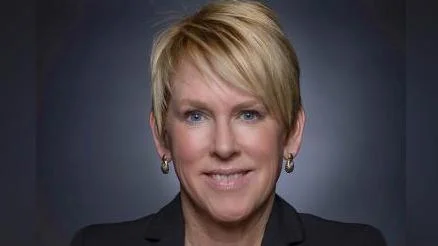Katherine P. Frank Chancellor | Official website
Katherine P. Frank Chancellor | Official website
The collaboration between Chippewa Valley Bean and the University of Wisconsin-Stout (UW-Stout) is advancing research on water usage in agriculture. The project, known as Crop Per Drop, aims to optimize irrigation practices for kidney bean growers in Wisconsin, reducing strain on freshwater resources while boosting yields and prices.
"This information will allow kidney bean growers in Wisconsin to better target their irrigation practices," said Charles Wachsmuth, vice president of Chippewa Valley Bean. The company is recognized as the largest processor and exporter of kidney beans globally and has partnered with UW-Stout faculty for innovative research.
Lindsey Redepenning, a student at UW-Stout, works on a weather station developed for the project. "I recently went to a global conference in Italy, and nobody is doing the research we are doing around crops and water and packaging sustainability," Wachsmuth added.
Supported by funding from the Freshwater Collaborative of Wisconsin, students are developing mathematical models under Professor Keith Wojciechowski's guidance. These models aim to help farmers use water more efficiently. The project offers hands-on experience for students while providing valuable staffing resources and research for Chippewa Valley Bean.
In 2022, initial funding allowed Wojciechowski to hire three students to work on optimizing water use models. With additional funding, five weather stations were installed in farm fields to collect real-time data such as sunlight, soil moisture, wind speed and direction, and rain.
Professor Wojciechowski emphasized the project's educational benefits: "There’s huge benefit to seeing how software you build will be used in the field." Lindsey Redepenning shared her experience working on both technical tasks like installing weather stations and analytical tasks like data analysis.
The potential expansion of this technology could include other crops or factors affecting crop growth such as disease or weeds. Additionally, this partnership has facilitated connections with other companies interested in similar R&D needs.
"We are greatly appreciative of the strong university system in Wisconsin," Wachsmuth stated. He highlighted the importance of supporting specialty crop growers and processors to maintain a robust agribusiness sector in Wisconsin.






 Alerts Sign-up
Alerts Sign-up